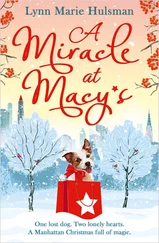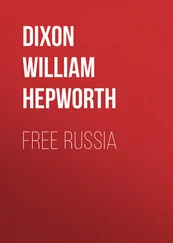Nikolai Nekrasov - Who Can Be Happy and Free in Russia?
Здесь есть возможность читать онлайн «Nikolai Nekrasov - Who Can Be Happy and Free in Russia?» весь текст электронной книги совершенно бесплатно (целиком полную версию без сокращений). В некоторых случаях можно слушать аудио, скачать через торрент в формате fb2 и присутствует краткое содержание. Год выпуска: 2005, Жанр: Поэзия, на английском языке. Описание произведения, (предисловие) а так же отзывы посетителей доступны на портале библиотеки ЛибКат.
- Название:Who Can Be Happy and Free in Russia?
- Автор:
- Жанр:
- Год:2005
- ISBN:нет данных
- Рейтинг книги:3 / 5. Голосов: 1
-
Избранное:Добавить в избранное
- Отзывы:
-
Ваша оценка:
- 60
- 1
- 2
- 3
- 4
- 5
Who Can Be Happy and Free in Russia?: краткое содержание, описание и аннотация
Предлагаем к чтению аннотацию, описание, краткое содержание или предисловие (зависит от того, что написал сам автор книги «Who Can Be Happy and Free in Russia?»). Если вы не нашли необходимую информацию о книге — напишите в комментариях, мы постараемся отыскать её.
Who Can Be Happy and Free in Russia? — читать онлайн бесплатно полную книгу (весь текст) целиком
Ниже представлен текст книги, разбитый по страницам. Система сохранения места последней прочитанной страницы, позволяет с удобством читать онлайн бесплатно книгу «Who Can Be Happy and Free in Russia?», без необходимости каждый раз заново искать на чём Вы остановились. Поставьте закладку, и сможете в любой момент перейти на страницу, на которой закончили чтение.
Интервал:
Закладка:
How strange!—notwithstanding
There's no church procession
The men have no hats on,
Are standing bare-headed,
As though in the presence
Of some holy Image:
Look, how they're being swallowed—
The hoods of the peasants. [16] On feast days the peasants often pawn their clothes for drink.
160
The beer-shop and tavern
Are both overflowing;
All round are erected
Large tents by the roadside
For selling of vodka.
And though in each tent
There are five agile waiters,
All young and most active,
They find it quite hopeless
To try to get change right. 170
Just look how the peasants
Are stretching their hands out,
With hoods, shirts, and waistcoats!
Oh, you, thirst of Russia,
Unquenchable, endless
You are! But the peasant,
When once he is sated,
Will soon get a new hood
At close of the fair….
The spring sun is playing 180
On heads hot and drunken,
On boisterous revels,
On bright mixing colours;
The men wear wide breeches
Of corduroy velvet,
With gaudy striped waistcoats
And shirts of all colours;
The women wear scarlet;
The girls' plaited tresses
Are decked with bright ribbons; 190
They glide about proudly,
Like swans on the water.
Some beauties are even
Attired in the fashion
Of Petersburg ladies;
Their dresses spread stiffly
On wide hoops around them;
But tread on their skirts—
They will turn and attack you,
Will gobble like turkeys! 200
Blame rather the fashion
Which fastens upon you
Great fishermen's baskets!
A woman dissenter
Looks darkly upon them,
And whispers with malice:
"A famine, a famine
Most surely will blight us.
The young growths are sodden,
The floods unabated; 210
Since women have taken
To red cotton dresses
The forests have withered,
And wheat—but no wonder!"
"But why, little Mother,
Are red cotton dresses
To blame for the trouble?
I don't understand you."
"The cotton is French ,
And it's reddened in dog's blood! 220
D'you understand now?"
The peasants still linger
Some time in the market,
Then go further upward,
To where on the hill-side
Are piled ploughs and harrows,
With rakes, spades, and hatchets,
And all kinds of iron-ware,
And pliable wood
To make rims for the cart-wheels. 230
And, oh, what a hubbub
Of bargaining, swearing,
Of jesting and laughter!
And who could help laughing?
A limp little peasant
Is bending and testing
The wood for the wheel-rims.
One piece does not please him;
He takes up another
And bends it with effort; 240
It suddenly straightens,
And whack!—strikes his forehead.
The man begins roaring,
Abusing the bully,
The duffer, the block-head.
Another comes driving
A cart full of wood-ware,
As tipsy as can be;
He turns it all over!
The axle is broken, 250
And, trying to mend it,
He smashes the hatchet.
He gazes upon it,
Abusing, reproaching:
"A villain, a villain,
You are—not a hatchet.
You see, you can't do me
The least little service.
The whole of your life
You spend bowing before me, 260
And yet you insult me!"
Our peasants determine
To see the shop windows,
The handkerchiefs, ribbons,
And stuffs of bright colour;
And near to the boot-shop
Is fresh cause for laughter;
For here an old peasant
Most eagerly bargains
For small boots of goat-skin 270
To give to his grandchild.
He asks the price five times;
Again and again
He has turned them all over;
He finds they are faultless.
"Well, Uncle, pay up now,
Or else be off quickly,"
The seller says sharply.
But wait! The old fellow
Still gazes, and fondles 280
The tiny boots softly,
And then speaks in this wise:
"My daughter won't scold me,
Her husband I'll spit at,
My wife—let her grumble—
I'll spit at my wife too.
It's her that I pity—
My poor little grandchild.
She clung to my neck,
And she said, 'Little Grandfather, 290
Buy me a present.'
Her soft little ringlets
Were tickling my cheek,
And she kissed the old Grand-dad.
You wait, little bare-foot,
Wee spinning-top, wait then,
Some boots I will buy you,
Some boots made of goat-skin."
And then must old Vavil
Begin to boast grandly, 300
To promise a present
To old and to young.
But now his last farthing
Is swallowed in vodka,
And how can he dare
Show his eyes in the village?
"My daughter won't scold me,
Her husband I'll spit at,
My wife—let her grumble—
I'll spit at my wife too. 310
It's her that I pity—
My poor little grandchild."
And then he commences
The story again
Of the poor little grandchild.
He's very dejected.
A crowd listens round him,
Not laughing, but troubled
At sight of his sorrow.
If they could have helped him 320
With bread or by labour
They soon would have done so,
But money is money,
And who has got tenpence
To spare? Then came forward
Pavlóosha Varénko,
The "gentleman" nicknamed.
(His origin, past life,
Or calling they knew not,
But called him the 'Barin'.) 330
He listened with pleasure
To talk and to jesting;
His blouse, coat, and top-boots
Were those of a peasant;
He sang Russian folk-songs,
Liked others to sing them,
And often was met with
At taverns and inns.
He now rescued Vavil,
And bought him the boots 340
To take home to his grandchild.
The old man fled blindly,
But clasping them tightly,
Forgetting to thank him,
Bewildered with joy.
The crowd was as pleased, too,
As if had been given
To each one a rouble.
The peasants next visit
The picture and book stall; 350
The pedlars are buying
Their stock of small pictures,
And books for their baskets
To sell on the road.
"'Tis generals, you want!"
The merchant is saying.
"Well, give us some generals;
But look—on your conscience—
Now let them be real ones,
Be fat and ferocious." 360
"Your notions are funny,"
The merchant says, smiling;
"It isn't a question
Of looks…."
"Well, of what, then?
You want to deceive us,
To palm off your rubbish,
You swindling impostor!
Интервал:
Закладка:
Похожие книги на «Who Can Be Happy and Free in Russia?»
Представляем Вашему вниманию похожие книги на «Who Can Be Happy and Free in Russia?» списком для выбора. Мы отобрали схожую по названию и смыслу литературу в надежде предоставить читателям больше вариантов отыскать новые, интересные, ещё непрочитанные произведения.
Обсуждение, отзывы о книге «Who Can Be Happy and Free in Russia?» и просто собственные мнения читателей. Оставьте ваши комментарии, напишите, что Вы думаете о произведении, его смысле или главных героях. Укажите что конкретно понравилось, а что нет, и почему Вы так считаете.











